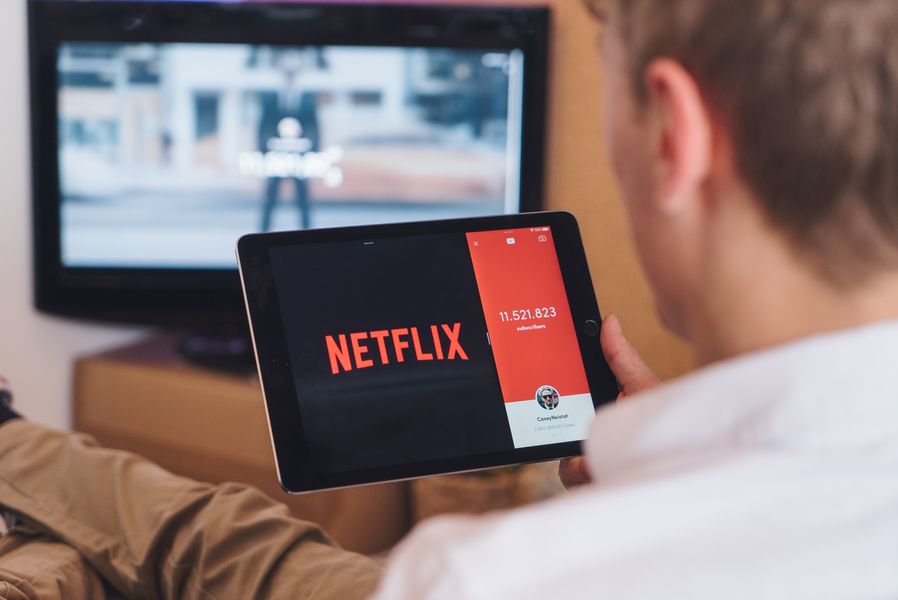
Should Netflix stop splitting seasons in half?
We need to talk about Netflix’s habit of slicing seasons in two. You start a new show, you’re hooked, you fly through the episodes… And suddenly, bam: “Part 2 coming in two months.” There you go. All of a sudden, the perfect binge high is killed as you realise the story just stopped mid-air.
For years, Netflix lived and thrived on the binge model. It was the platform you went to when you wanted it all at once. There was no waiting or dragging things out. And wasn’t that part of the appeal? You could disappear into a season over a weekend, finish it, and join the cultural conversation without fear of spoilers.
But over the last couple of years, things have shifted. Stranger Things four arrived in two volumes. Bridgerton’s latest season was sliced in half. Wednesday’s second season’s volume two, will be released after a month. These days, even before a show premieres, fans ask if it is going to be “another split season”. The practice has become a pattern, and not everyone is thrilled.
So the question is simple but tricky: should Netflix keep doing this? Or is it time to rethink the whole strategy?
Why does splitting frustrate Netflix fans?
The biggest complaint from fans is that splitting seasons ruins the flow. A show is meant to build momentum, episode by episode, until it delivers the emotional payoff. When a season is chopped in two, that momentum is stalled. First, you make the viewers spend weeks or even months waiting, and by the time part two arrives, half of the intensity has worn off.
Take Stranger Things four. Volume one ended on a massive cliffhanger, but by the time volume two dropped, the frenzy had cooled just a little. The same happened with Bridgerton this year. The first batch of episodes left fans buzzing; TikTok was flooded with edits and theories, but the pause before part two meant some of that buzz faded before the story wrapped up.
There is also the issue of trust. Fans know this is not always about storytelling but more about business. Splitting a season forces subscribers to stick around for at least another billing cycle. With prices already going up, the strategy feels more like a money grab than a creative decision. And that has made some loyal Netflix watchers openly sceptical.
The real question: Why won’t Netflix stop?
From Netflix’s perspective, the split-season trick works. It keeps shows alive in the cultural conversation far longer than a one-weekend binge. Before the second volume drops, Reddit, Instagram and TikTok are flooded with wild fan theories, which generate more buzz as compared to when the whole season is dropped all at once. Think about it. Bridgerton dominated online chatter twice this year: once with part one and again with part two. That kind of extended relevance is priceless in the current world streaming wars.
And the truth is, even though frustrated, fans come back. No matter how much people complained about waiting for Stranger Things 4: Volume 2, millions pressed play the second it arrived. Netflix knows that annoyance does not necessarily mean lost viewership.
But if you notice carefully, Netflix only plays this volume distribution gamble on its best players. Those shows which have gained a loyal fanbase over the years. The OTT giant has caught the nerves of the viewers and knows well that they’ll come back.
That said, there might be a better compromise: the weekly model. Platforms like HBO and Disney+ have shown how effective it can be. House of the Dragon and The Mandalorian stretched their cultural moment over months. With every new episode sparking fresh debates and theories. Imagine if Wednesday followed that approach. The fan energy could last all season long without the awkward break in the middle.
The problem, of course, is that Netflix’s identity is built on binge culture. Switching entirely to weekly drops would feel like abandoning the very thing that made the platform stand out. Splitting seasons is the halfway solution, but when brought into practice, it often feels like the worst of both worlds.
Here’s the verdict
So, should Netflix stop splitting seasons in half? From the perspective of viewers, yes. It kills the rhythm, weakens the storytelling impact, and feels like a trick to stretch subscriptions. For Netflix, probably not. It is effective, it keeps fans hooked for longer, and it doubles the buzz for their biggest shows.
The real solution might be balance. Not every series needs to be split. Light-hearted shows like Emily in Paris should stay bingeable. Theory-heavy giants like Stranger Things or Wednesday might actually benefit more from a weekly model. What does not work is leaving fans dangling mid-season just to pad the calendar.
Until then, we will keep grumbling… And we will keep watching. Because hate it or love it, when part two finally drops, every single one of us will still be right there on the couch. And Netflix knows it.